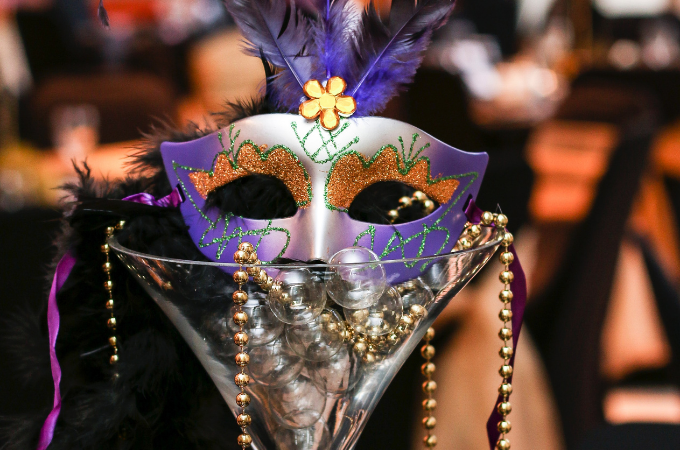
On the eve of the carnival, every year, for four years, she calls Hilton’s Resort at the eleventh hour to make the same reservations: Table 4. Dinner for two. Suite 404.
We are sorry, at this time of the year, we’re fully booked. The weight of a busy night shift, like the December haze, hangs heavy on the receptionist’s voice.
Of course, of course. Isn’t there anyone I can speak to? The manager, maybe? Again. She knows the drill. She promises an instant payment, doubling the usual sum.
Ma’am, I’ll let you know if anyone calls to cancel. At the moment, I can’t promise you’ll get what you’re looking for.
But she always does, because she double-tips a private bank account, and as quickly as her phone beeps with an outrageous debit notification, she’s in luck.
Have a wonderful, wonderful holiday, ma’am.
She heaves a sigh at the unfortunate extortionist making a fortune out of the profitless deal she’s made with grief. She doesn’t feel anything for the other guests who’d certainly get refunds and apologies for “a little mix-up, a system glitch”— nothing that hasn’t been handled except their reservations won’t be available until the day after tomorrow. That’s how many strings she pulls and how much time she needs to relive the memories of her first real love in this mortal space. Every year, for four years.
In the first episode of her reveries, her expeditionary ship has just moored into the capital city of Cross-River State to explore the annual Calabar Carnival. She is wading her way through the different dance troupes. The masquerades of the Efik, Yakurr, Bette, Igede, and the Bekwarra serenade the Municipal with their acoustics and acrobatic leaps. A flash here, a scribble there, she enjoys the tropical heat of the day, her purple satin apparel clinging to her sweaty skin. Most of the time, she’s in the shadow of a bevy of ladies adorned in dresses crafted from flamboyant feathers, the colours of things she can’t name. They converse mostly in Pidgin English, and she giggles when she thinks that they actually strutted like peacocks. She trails a jubilant array of men in raffia and jute who roam, detour, rear back, and then dance into the finale: the bonfire night.
She follows the tantalizing whiff of what must be barbecued fish sailing the harmattan wind to treat her palates. Distracted, she bumps into a body in the frenzied crowd of adventurous tourists and refulgent locals. Her camera slips from her hand. They fuss over it in a rather awkward fashion. The girl inundates her with rapid streams of I’m sorry. An unwary foot steps onto a delicate part of the device leaving a crunchy sound in its wake. The girl retrieves the item before more harm is done by another oblivious dancer. It’s not tagged the “Biggest Street Party in Africa” not to have such occasions of mindless accidents.
The girl hands over her guilt. A pendant, the carving of a dolphin, hangs from a line of gaudy beads on her neck.
Did it break?
No. No worries. Nikon makes the strongest cameras. I hope I didn’t knock the air out of you, either?
Oh, no, no. Did I?
Reflecting on that moment now — standing on the balcony of her hotel room on the fourth floor, overlooking the artificial body of water too big to be called a pool — she knows she had been winded by the girl’s aura, enchanted by the pair of ethereal eyes wherein a rainbow of a hundred fireworks lighting up the dark azure sky basked. Her voice, rising above the surrounding percussion and glee, was the tingly seduction of a girl barely tasting life at twenty; like the acculturation of the next day, it trembled with a lush Efik accent. She knows because she makes a living sojourning, learning, and vlogging the convergences of super-liminal African spaces.
You’re not from here, are you?
By that she knew the girl meant she is not African, what with her paleness and blonde hair. But this was a misgiving she’d decided needed immediate correction after her last encounter with a man who referred to her as “the white lady photographer over there” during last month’s November Festival of Lights in Abuja, when she first visited Nigeria.
I’m South African. It’s my first time in the country. I came to see the carnival. My name is Makhosazana.
Oh, wow. Welcome, Masokasazana. I go to school here at the University of Calabar. Come, let me show you around if you’ve not already seen enough. Call me Esin.
She does. The name is not a mouthful like hers which Esin — after their tour of the sprawling streets, and a late dinner of Abak atama soup, semolina and rib-cracking jokes at Table 4 — tried and when she still couldn’t get the consonants to seat comfortably, settled for “Khosi”.
Do you mind if I call you Khosi?
She doesn’t mind. The heart names the fantasy.
So, you travel and write about places. That’s awesome. But how does it pay you? I mean, you must make loads of money to afford to rent this kind of place for a weekend.
Yes. Yes. I’m what you might call a traveloguer. I do make money. I have a blog. It’s a big travel blog…
Before dinnertime is over, they’ve shared dreams and the transliterations of sensuous words in the tongues of their mothers. By Esin’s third visit to her hotel room, they are equally and totally smitten.
Khosi leaves the balcony and walks back into the room where Adele’s “Don’t You Remember” croons eerily, giving wings to the graphic memories of their first lovemaking. Numerous bits of scented candles trace the word ESIN on the marbled floor. One moment of mishap, two nights of affection, and there’s just enough to have the redolence of loss wafting for eternity.
She swipes her phone open, and dials “Esin”, for the zillionth time, hoping.
Nothing: the familiar dead tone of inexistence.
It’s the last night of the carnival, her last night in Nigeria. They are out in the open fields of a street she can’t name but feels safe because a daughter of the soil curls beside her. When Esin speaks, her voice is the fractured sonority of Adele’s opening line, when will I see you again?
Next carnival, Khosi says.
Esin chuckles. I wish I had that long.
She turns and glowers into her lover’s face, her furrowed brow needing clarity.
Esin exhales. I have anaemia. They say sicklers don’t live past 21. That’s what my mother tells me.
Khosi is shocked. That can’t be true! Esin, lying on her back still, now looks frail and… vulnerable. Listen to me, Esin, you will live— She chokes on the comfort she so dearly wants to give. Instead, she smothers her with kisses and tears. She feels Esin’s hands curl around her neck. When she releases the embrace, the beaded pendant dangles around her neck.
I didn’t know I’d spend my last days loving a woman. Didn’t know I was capable of that.
Khosi fingers the dolphin. She’d known the urge was underlying, surging beneath her skin; she just wasn’t sure she would unleash the throbs in a place so far from home where she first nursed them.
I don’t know when next you’d be in Nigeria, Khosi. But you’ll know if I made it by next carnival. I know where to find you.
Thunderous showers of fireworks bathe the night sky, declaring the end of this year’s carnival, jolting Khosi back to the present. She stares at the dressing table that’s become a makeshift altar. Every year, for four years.
A framed picture of Esin wearing a contagious smile and pendant – the one which now decorates the table – leans on the wall. Two plates of Abak atama and Otong soup are guarded by two big smouldering candles. If the walls of Suite 404 remember those who’d shared a foretaste of everything — a first soup, a first carnival, a first tryst — before the departure of time, they would tell her that Esin, who was merely five years younger, was so full of life and love, robust enough to hide the predicaments of cancerous blood cells. They would tell her Esin’s mother was wrong. People battle these things and outlive time without the shadows of a deadline. They would tell her that the first time they met couldn’t have been their last carnival together, so there can’t be any closure. Esin will follow the aromas of the two delicacies she’d insisted they savoured before she left Nigeria, four years ago. She will walk right into this dimly lit room, maybe at the eleventh hour. She’ll explain the sudden incommunicado that’d besieged the past years. And maybe they’ll taste once more the different carnivals of hope on their lips, every year. Forever, once more.
Photo by Hush Naidoo Jade Photography on Unsplash





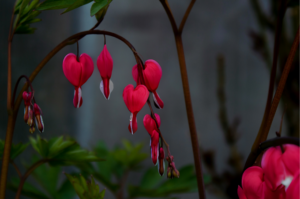
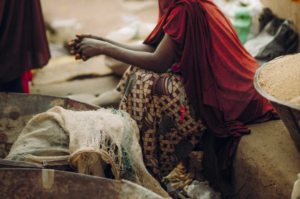
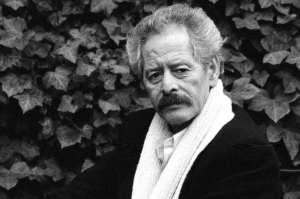
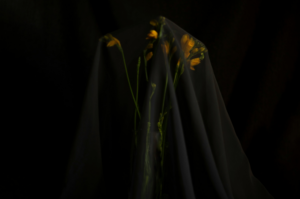

Ugochukwu Anadị December 20, 2021 10:09
Loss, grief, pain, celebration and brilliance!